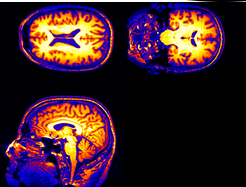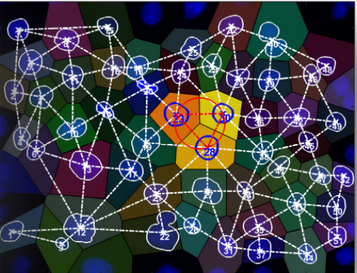Biomedical and Biosignal Systems

Biomedical and Biosignal Systems
This scientific area encompasses a wide range of engineering approaches to study and interact with biomedical systems. It includes instrumentation as well as signal processing and computational methods associated with the measurement, representation, modelling, interpretation and manipulation of biomedical systems.
The Biomedical Systems and Biosignals scientific area is divided into five sub-areas:
- Biomedical instrumentation,
- Bioelectromagnetism,
- Biomedical imaging,
- Biosignal processing and
- Computational biology.
 |  |  |
More specifically, DBE faculty and researchers have expertise in the areas of wearable physiological sensors, biological signal processing and classification, biomedical image analysis, computational biology, ultrasound imaging, magnetic resonance imaging, electroencephalography, neuroimaging and neuroengineering.
Education
This scientific area is responsible for teaching undergraduate and postgraduate courses in Introduction to Biomedical Engineering, Introduction to Bioelectricity, Signal Acquisition Instrumentation in Bioengineering, Signal Processing in Bioengineering, Medical Imaging, Neuroimaging, and Neuroengineering. While most courses are specifically offered as part of the Integrated MSc and PhD Programmes in Biomedical Engineering, courses are also offered for other degrees in the DBE and the Technical in general. It is important to note that most courses are offered in collaboration with the ULisboa Medical School, providing the crucial medical perspective on each topic.
Research
Students, at all levels, have the opportunity to actively participate in research training in the affiliated research groups, namely in Laboratory for Evolutionary Systems and Biomedical Engineering (LaSEEB) at the Institute of Systems and Robotics - Lisboa (ISR-Lisboa), Institute of Telecommunications (IT), and the Instituto de Engenharia de Sistemas e Computadores, Investigação e Desenvolvimento em Lisboa (INESC-ID).